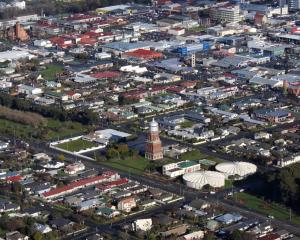The Government is expected to ring-fence losses made on property income from other sources of income to discourage people from investing in properly solely for capital gains.
The Tax Working Group noted that $200 billion of investment in rental housing generated net rental losses of $500 million and $150 million in tax revenue losses in 2008.
It also noted that loss-attributing qualifying companies were one of the main mechanisms used by investors.
The so-called LAQCs are companies with a special tax status that enables losses to be offset against shareholders' personal incomes.
WHK tax consultant Jarod Chisholm said the Government had indicated it was concerned with taxpayers gaining deductions for depreciation when the capital value of properties continues to increase.
"While we all know that properties do depreciate over time, in recent years the capital increase of the value of properties has more than offset the depreciation of the buildings.
"As such, we feel that is is likely that the Government will disallow depreciation claims in relation to buildings."
While governments had indicated that it should apply only to residential properties, the arguments for disallowing depreciation on buildings applied equally to residential and commercial properties, he said.
WHK believed the Budget changes would apply only to residential properties, Mr Chisholm said.
Craigs Investment Partners broker Chris Timms said the changed property tax rules would be judged by their effect on current property owners, and whether they would change the attractiveness of owning property.
If investors decided to go out of property, the sharemarket could benefit through increased investment from the disillusioned property owners.
"We don't expect any major change in behaviour or a flood of new investment into the equity market.
But it may start to change investment attitudes and capital allocation decisions.
"We may see some shift of capital from residential housing into business, which could help to boost GDP per capita over time, and that has to be positive."
Listed property trusts had been "sitting in limbo" since speculation about the property tax changes started.
Getting clear guidance in the Budget would benefit those companies, Mr Timms said.
ANZ-National Bank chief economist Cameron Bagrie expected the market to take the Budget in a "positive tone".
A credible fiscal path for consolidation would be presented and the Government would be able to demonstrate it was making progress by setting new priorities for expenditure.
Monetary policy was expected to receive assistance from both the movements in fiscal policy towards a contraction stance and some targeted measures towards housing, he said.
Mr Chisholm said the Government wanted to remove New Zealanders' bias towards investment in property in the hope the investment would be directed elsewhere.
The expected increase in GST to 15% from October 1 would also cause significant headaches for taxpayers.
Where a business was a price-maker, it would simply increase the price by the GST increase.
However, price-takers would find that the price the consumer was willing to pay would remain unchanged, he said.
An example of a price-take would be a property developer selling residential properties.
Before October 1, they could have sold a section for $200,000 (GST inclusive) and would have paid $22,222.22 in GST.
The same sale after October 1 would result in $26,086.96 in GST being paid.
"Given that the residential purchaser has no ability to claim back the GST on that purchase, has the value of the section increased for the prospective purchaser? Probably not."
Over time, that anomaly would correct itself but in many cases there was no ability to immediately change the price.
That would mean many businesses reducing their stock levels before the introduction date for any GST increase, Mr Chisholm said.
Prime Minister John Key announced last week there would be a $234 million boost in research and development for business.
Science was a policy priority and fitted the Government's objective of lifting the long-term performance of New Zealand's economy.







